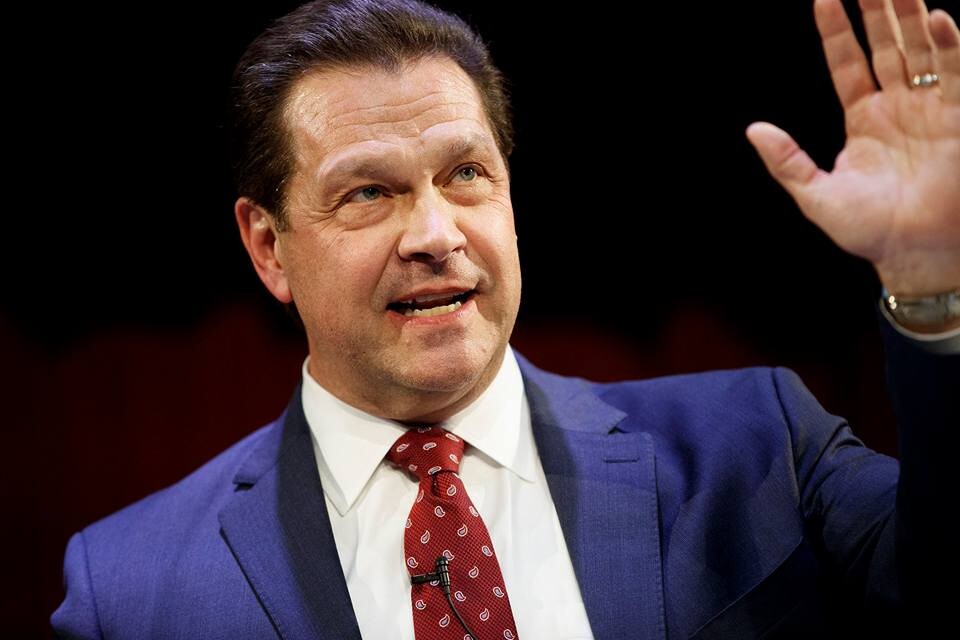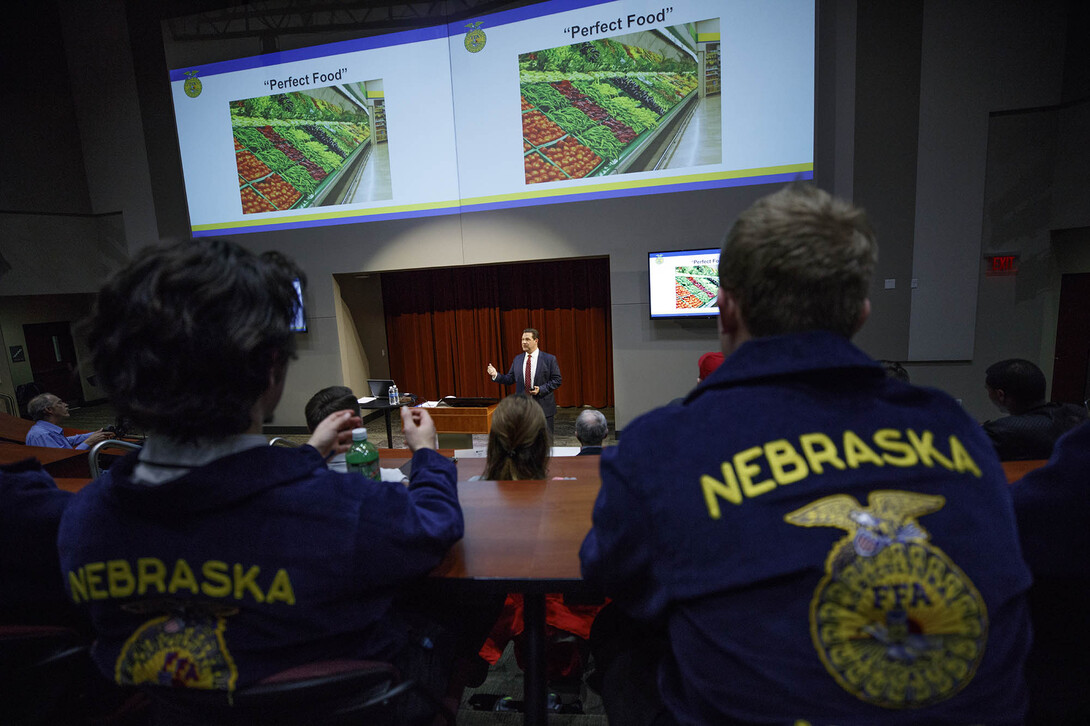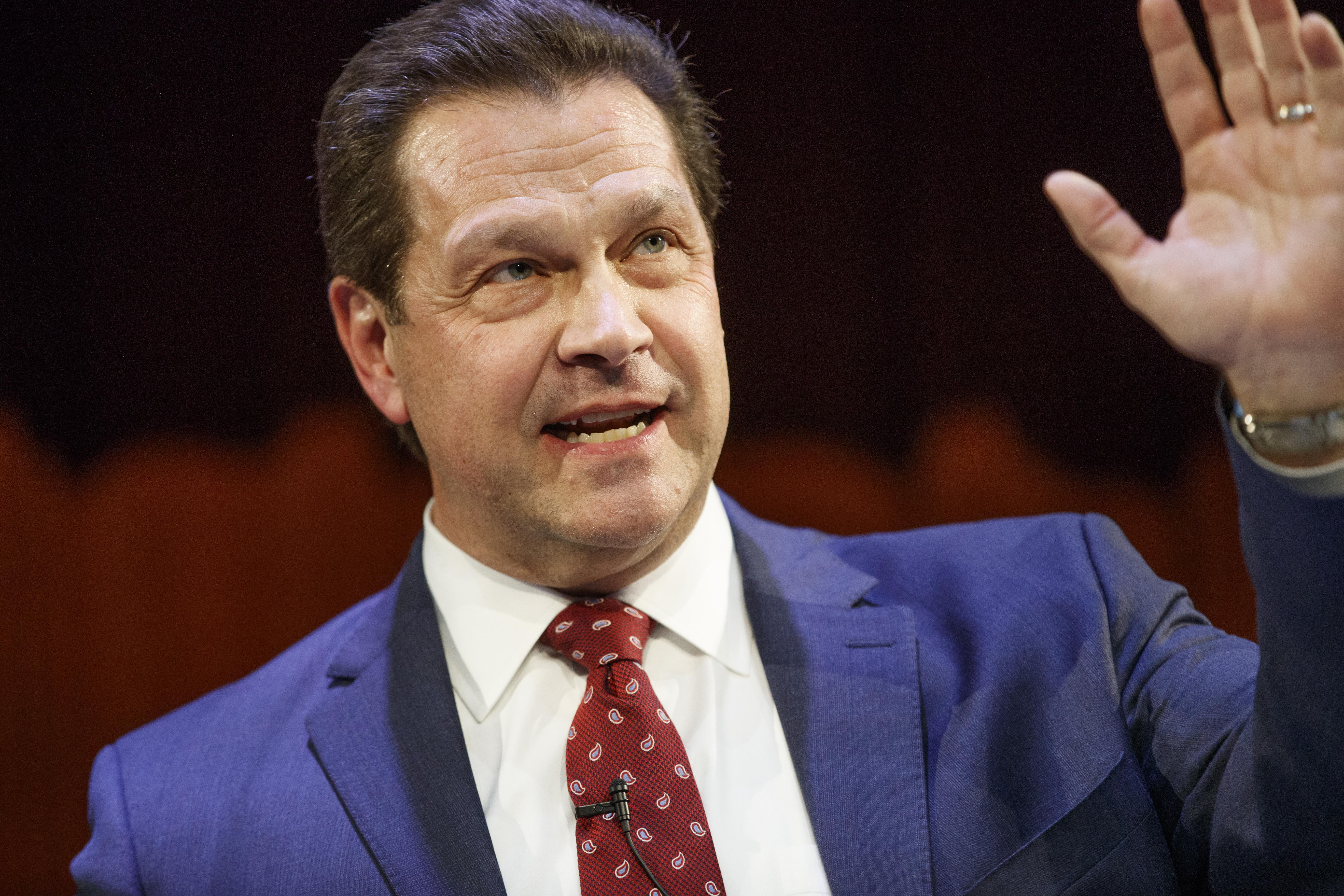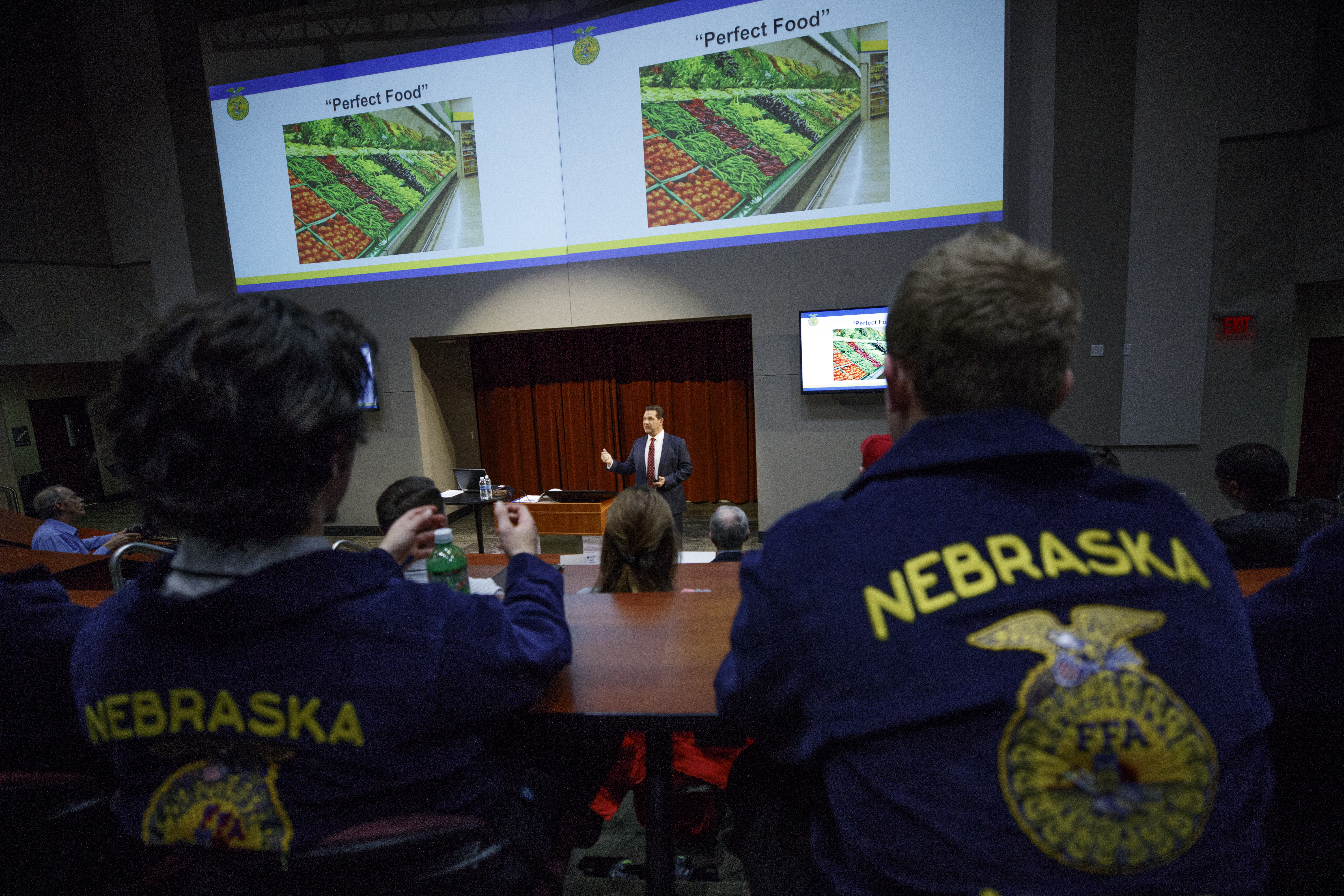
In the next 50 years, the world needs to double the amount of food it produces in order to feed a growing population. That responsibility doesn’t lie only with farmers and scientists, but with everyone, according to Mark Poeschl, chief executive officer of the National FFA Organization and the National FFA Foundation.
“If there’s a blemish on an apple, accept it,” Poeschl said. “The amount of food that is wasted on a daily basis because it isn’t perfect is staggering.”
Society demanding “perfect food” was just one of the topics discussed when Poeschl presented his thoughts on sustainably feeding the world during a Heuermann Lecture Jan. 10 at Nebraska Innovation Campus. He also talked about challenges with water conservation, land availability, infrastructure and deploying innovation.
According to Poeschl, the amount of food wasted in the world today is enough to feed 3.2 billion people.
“There’s 1 billion people in the world that are malnourished today …,” he said. “Maybe one solution is to get on the bandwagon and figure out how to address food waste.”
Water conservation is another issue that needs to be addressed to feed 9 billion people by 2050. Poeschl, who said he believes wars will be fought over water in his lifetime, commended the Robert B. Daughter Water for Food Global Institute at the University of Nebraska for its work in this area.
“I want to tip my hat to the university for the work that’s being done globally to understand our resources, how we can utilize water more effectively for crop production and how we can be more conservative in the nature that we use water,” he said.
Poeschl also discussed the challenges of land availability and infrastructure. While there are huge sections of land available in Africa for agricultural production, the equipment, fertility, seeds to grow in those environments and education are missing. One of Poeschl’s priorities as CEO of the National FFA Organization is to recruit and retain more agriculture instructors, something he views as a priority for the viability of FFA and sustainably feeding the world.
Even if more land in Africa is developed for agriculture, transporting food can be difficult.
“Roads are critical,” Poeschl said. “The inadequacy of getting food from point A to point B in developing countries is a huge hurdle.”
Poeschl said he believes innovation and technology will play a huge role in solving these issues. He credits STEM education with furthering these developments. Genetically modified organisms often come up in a controversial way in discussions about innovation but that doesn’t sway Poeschl from starting a conversation about them.
“Genetically modified organisms are one of the most misunderstood developments in agriculture,” Poeschl said. “If we don’t deploy technologies like GMOs, then we can’t feed everybody.”
A dialogue about these technologies and other difficult topics such as food waste, water conservation, land availability and infrastructure needs to happen, Poeschl said.
“We need to talk to people who may not agree with us, and we need to be willing to have critical dissemination of information to figure out how to feed everyone,” he said.
Poeschl, a native of Mead, is responsible for the operations and long-term success of the National FFA. Together with the board of directors and the board of trustees, he assures FFA’s relevance and service to agriculture and agricultural education. Prior to this role, he was vice president and group director, stakeholder engagement, at Cargill Animal Nutrition. He earned a Bachelor of Science degree in agriculture from Nebraska in 1983.
“FFA is the best in the world at leadership development, and we do that so we can create a talent pipeline for the industry of agriculture to help us address the issues that we’re facing to feed everyone,” Poeschl said.
Heuermann Lectures in the Institute of Agriculture and Natural Resources at the University of Nebraska-Lincoln are possible through a gift from B. Keith and Norma Heuermann of Phillips. The Heuermanns are longtime university supporters with a strong commitment to Nebraska’s production agriculture, natural resources, rural areas and people. Lectures are streamed live here and air live on campus channel 4. They are archived after the event and later air on NET2 World.










